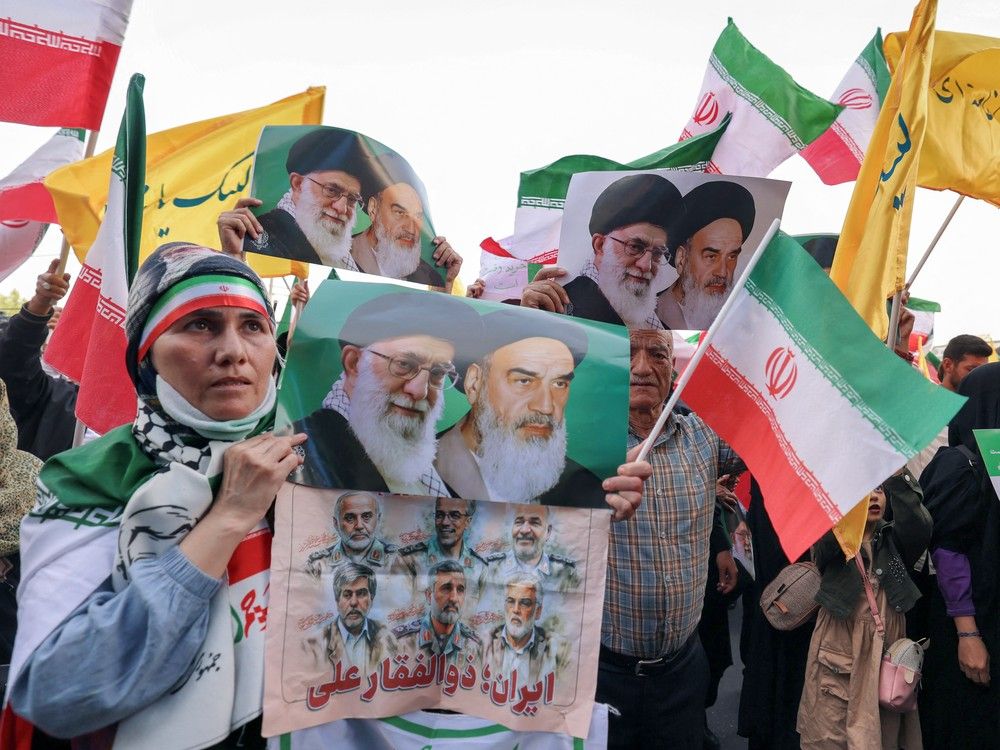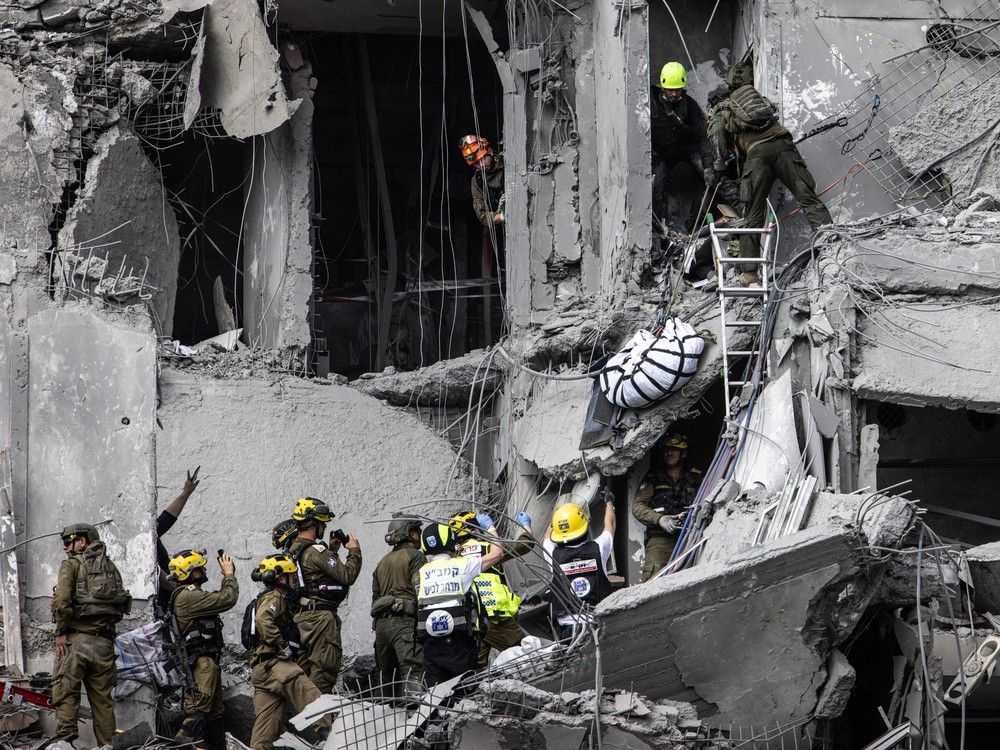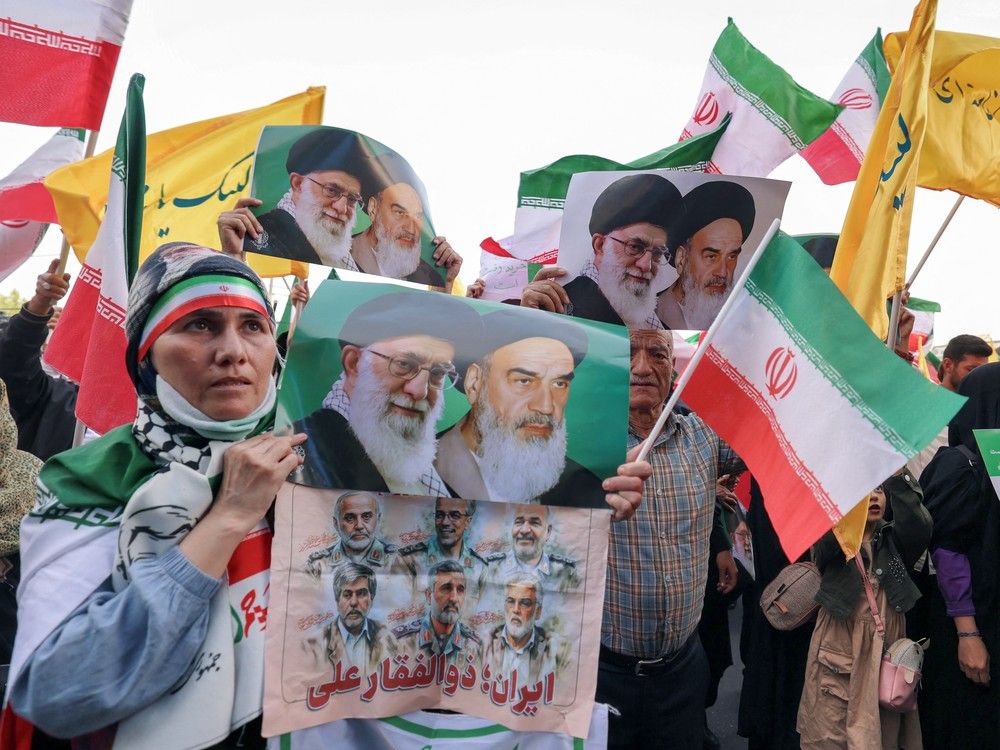
As tensions returned to a simmer between Israel and Iran amidst a ceasefire agreement, a new poll conducted before
found that far more Canadians are distrustful of Iran than those who have faith in the Islamic Republic.
But data from a Leger Marketing poll for the Association for Canadian Studies poll showed that younger generations are more apt to trust Iran and think it wouldn’t be good for the regime of Supreme Leader Ayatollah Ali Khamenei to collapse and be replaced by new leadership.
The polling also attempted to gauge whether respondents “think that Iran wants the destruction of the State of Israel,” with 71 per cent believing that to be the goal, and even 59 per cent of the 18-24 cohort.
Jack Jedwab, the Association’s president and CEO, said that despite the younger generations’ different perceptions of the conflict, it points to Canadian public opinion being closely aligned with that of the U.S. and NATO.
“We’re hearing from the prime minister (Mark Carney) in terms of how he positions himself, which is closer to the view of the U.S., I would suggest,” Jedwab told National Post.
“That’s not speaking to what actions the U.S. has taken in the past four or five days. I’m just talking strictly in terms of the perception of Iran and Iran’s position in these global conflicts.”
Carney, who’d previously
, said after U.S. airstrikes on three Iranian nuclear sites over the weekend that Canada also stands against Iran developing a nuclear weapon and
called for a diplomatic resolution to the unrest in the broader Middle East.

Overall, ACS found that only 12 per cent of all respondents see Iran as trustworthy, compared to 52 per cent who felt it wasn’t. Trust was highest among the 18-24 group (34 per cent) and decreasingly lower across each age group, culminating with a mere 4 per cent of those over 65.
“There seems to be some very important differences in the world vision or the way in which the younger cohorts have a different view of the nature of these conflicts and how they position the protagonist,” said Jedwab, noting that data extrapolated from the employment status showed students (27 per cent) were also more apt to trust in Iran than any other age group.
“They seem to have a much softer view on Iran’s intentions and the intentions of the Iranian regime.”
He reasons that it relates to how and from where that group is receiving the news that informs their opinions.
“All the alternative narrative, not the majority narrative, seems to be really sort of more attractive to people in that youngest cohort and to students,” he added.
The youngest cohort also appears to be the most conflicted, too, with an equal 34 per cent believing Iran is untrustworthy, and 32 per cent who were unsure or chose not to answer, aligning with the national average of those who responded the same (36 per cent).
“They’re very split on the issue,” Jedwab surmised.
The generational opinion gap was evident, too, when respondents were asked if a change of government would be a good thing for Iran; only 34 per cent of those identified as students agreed, compared to more than 50 per cent in all other employment status — 71 per cent among the self-employed and retirees.
The 18- to 24-year-olds didn’t stray far from their elders in the view that Iran’s goal is to destroy Israel, however, with 59 per cent in agreement.
The poll also found that those who trust Iran are less likely (60 per cent) to concur with the regime’s collapse and replacement, and almost evenly split (49 per cent to 51 per cent) on whether Iran wants to destroy Israel. Those without trust in Iran were more confident of both sentiments (75 per cent and 83 per cent).
The poll was conducted June 20-22 and canvassed 1,580 adults. While a non-probability sample panel survey such as this doesn’t have a margin of error, a similar probability sample of that many respondents would have a margin of error of plus/minus 2.5 per cent, 19 times out of 20
Our website is the place for the latest breaking news, exclusive scoops, longreads and provocative commentary. Please bookmark nationalpost.com and sign up for our daily newsletter, Posted, here.
